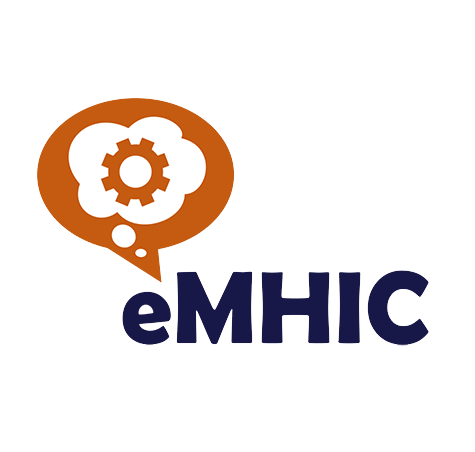In this webinar, eMental Health International Collaborative leaders will discuss how to get the policy and standards context right.
The pandemic has put enormous strain on lots of people’s mental health and shone a spotlight on issues that were there before. This correlates with the increasing uptake of digital mental health tools and services we are seeing, as people around the world grapple with COVID-19. Consumer’s mental health combined with an acute need for remote services is driving the digital movement. In France for example, cases of depression doubled across 2020 and at the same time VCs boosted funding provision for mental health start-ups by 4.5 times. There has been a proliferation of various digital mental health tools to meet this high demand. International data shows that less than a quarter of those tools and services meet minimum standards for safety and effectiveness. Governments and mental health service providers at local, regional, state, and national levels are struggling to keep up with the pace of development, which has caught everyone off guard.
Come and hear what global leaders have to say
In this Special Interest Group webinar, leaders from USA, Australia, New Zealand, Canada and Singapore will discuss a range of responses by different countries to get the eMental Health Policy and Standards context right. Government responses have taken many forms including developing eMental Health Strategies, Frameworks, and/or Standards, in order to inform effective commissioning and implementation. While good steps have been taken across various jurisdictions, much work remains to be done.
Expert Panelists:
1. Christine Morgan, CEO, National Mental Health Commission and National Suicide Prevention advisor to Prime Minister Rt Hon Scott Morrison, Australia.
Ms Christine Morgan is the CEO of the National Mental Health Commission and National Suicide Prevention Adviser to Prime Minister Scott Morrison. Ms Morgan is a passionate leader in mental health care reform, committed to listening and responding to the voice and needs of those with lived experience. Prior to joining the Commission, Ms Morgan was CEO of the Butterfly Foundation for eating disorders and Director of the National Eating Disorders Collaboration. As former CEO of the Butterfly Foundation, she led a collaborative advocacy strategy that included amplification of eating disorders as a serious mental and physical health issue. This is now being replicated internationally. In the not for profit sector, Ms Morgan was General Manager at Wesley Mission, over the areas of Corporate Services; and Community & Family Development. Prior to joining Wesley Mission, Ms Morgan was Executive General Manager responsible for managing the strategic direction and business unit effectiveness of the Wholesale, Broadband & Media Business Unit at Telstra.
2. Charles Curie, Principal, The Curie Group, Former Administrator, SAMSHA (2001 – 2006), USA.
Charles G. Curie is the principal and founder of THE CURIE GROUP, LLC, a management and consulting firm specializing in working with national and international leaders in public and private healthcare, particularly mental health (MH) services and substance use (SU) treatment and prevention arenas, to facilitate the transformation of services and to attain increasingly positive outcomes in the lives of people worldwide. Curie has over 40 years of professional experience in the MH and SU services fields. In 2001, Curie was nominated by President George W. Bush and unanimously confirmed by the U.S. Senate to head the Substance Abuse and Mental Health Services Administration (SAMHSA). As SAMHSA Administrator, Curie led the $3.4 billion agency responsible for improving the accountability, capacity and effectiveness of the Nation’s public mental health and addiction treatment services.
3. Phillip Grady, Acting Deputy Director-General, Mental Health and Addiction, Ministry of Health, New Zealand.
Philip’s range of experiences include frontline clinical nursing roles, senior management roles in both mental health and addiction services. In his current role as acting Deputy Director-General for Mental Health and Addiction, Philip is leading an ambitious programme of work that will see a once-in-a-generation transformation of mental health and addictions systems. This work is focused on improving access, choice and outcomes for New Zealanders and repealing and replacing the current Mental Health Act.
4. Ed Mantler, Vice President, Mental Health Commission of Canada, Canada.
A highly motivated visionary and an expert at building partnerships, fostering stakeholder engagement, and aligning strategic objectives, Ed has led innovation and improvement in both health care and mental health for over two decades. As Vice-President of Programs and Priorities at the Mental Health Commission of Canada, Ed is dedicated to promoting mental health in Canada and changing the attitudes of Canadians toward mental health problems and illnesses. Ed is a Registered Psychiatric Nurse, holds a Master of Science Administration degree, and is a Certified Health Executive.
5. Dr Daniel Fung, CEO, Institute of Mental Health, Singapore.
Dr Daniel Fung is the CEO of the Institute of Mental Health in Singapore. He is an Adjunct Associate Professor at all 3 Singapore medical schools. Dr Fung is the President of the International Association for Child and Adolescent Psychiatry and Allied Professions and President of the College of Psychiatrists, Academy of Medicine, Singapore. Dr Fung has co-authored over 200 peer reviewed research papers, books and book chapters.
6. Professor Nick Titov, Executive Director, Mindspot, Australia.
My roles include Executive Director of both the Australian national MindSpot Clinic, www.mindspot.org.au, and the Western Australian Practitioner Online Referral and Treatment Service (PORTS), www.ports.org.au, and Co-Director of the eCentreClinic research clinic, www.ecentreclinic.org. I currently serve on advisory groups to several organisations. My research and professional aims are to reduce the prevalence and burden of common mental health disorders, and reduce barriers to care. There are three parts to this research. First is research aimed at understanding the mechanisms of change during psychological therapy. Second is research concerned with the development and evaluation of new psychological treatment models. Third is research aimed at determining how these protocols can be most safely and effectively deployed in routine clinical settings.





